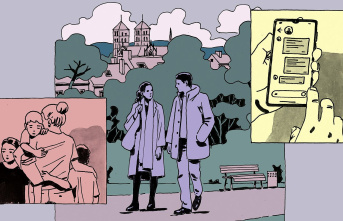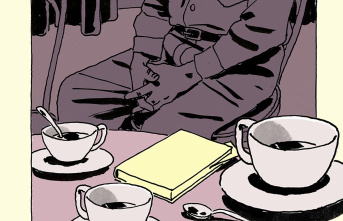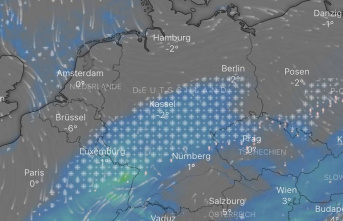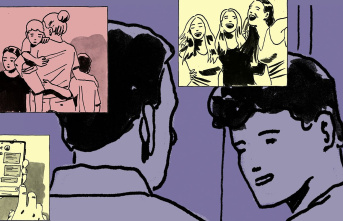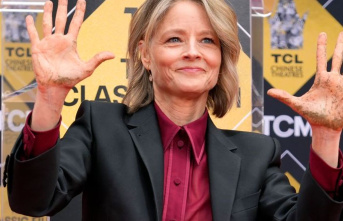Just over 200,000 hectares of land in the Community of Madrid are dedicated to agriculture, a sector that has excessive fragmentation among its weaknesses. For this reason, the Ministry of the Environment, Housing and Agriculture directed by Paloma Martín is supporting land consolidation processes, which incidentally replace old irrigation systems with more sustainable ones. Since 2000, it has been launched in seven municipalities: where there were 7,316 plots, now there are 2,700.
Having many small scattered plots makes exploitation more expensive because "it involves the transport of machinery, and the consumption of time and diesel," explains Ángel de Oteo, general director of Agriculture. The concentration is usually "accompanied by an improvement in the irrigation system", which replaces flood irrigation with other systems such as drip or sprinkler, with "savings of between 1,000 and 1,500 cubic meters of water per hectare."
To carry out this process of land consolidation, the first thing is to convince the owners of the land. "More than 50 percent of the owners, or 75 percent of the surface, have to agree to the merger," he concludes.
Although the system has already been applied or is in the process of being applied in almost a dozen Madrid municipalities, farmers have not been convinced in others. "In 2021, in the Vega del Tajuña we have been doing the job of telling what it is like, how it is done, what advantages it has... But of all those towns, in none of them was a sufficient majority obtained to do so," explains De Oteo.
In cases where there has been a quorum, the process is long: sometimes it involves different public administrations and hydrographic confederations. It is not difficult to imagine how complicated it is, explains Ángel de Oteo: «There is always someone who has a tree there that his grandfather planted, or a tool shed that he has raised with his hands». In addition, factors such as the type of terrain, its proximity to water or other properties, etc. must be taken into account. All these factors are qualified by technicians. "Bags of points are made, and you get one or another farm in compensation for those points," says the regional manager.
Modern irrigation systems take advantage of technological advances to calculate the amount of water depending on the time of year, temperature and other factors. The trend, explains De Oteo, is to go towards "precision agriculture", which uses, for example, programmers that warn where to irrigate and when, based on the reading of some sensors.
The regional government pays "one hundred percent of the costs of the subdivision." And many of the irrigation systems are also subsidized. Populations such as Villamanrique de Tajo, Torremocha de Jarama, Torrelaguna, Estremera or Fuentidueña de Tajo (La Poveda) already know this. On this last point, he indicates, "of 192 plots, 94 have been made. And now we are at the moment of improving irrigation, for which we are going to use photovoltaic water propulsion energy."
It is not a trifle: for Juan Carlos Cosío, a farmer in Estremera, the cost of electricity for irrigation "is the biggest problem we have." The current escalation in prices forces us to "spend all day looking at the prices, to see when it works best: lately I'm watering from 12 to 7 in the afternoon." Even so, the numbers do not come out: "Today it is 200 euros, when last year it was paid at 50 or 40," laments Cosío. Who would like to "tell the chairman of Iberdrola, Ignacio Galán, who said that we were fools who have a regulated rate, that I have always had it free, but last year I had to renew it and I can no longer choose, they don't give me the free as an irrigator.
Cosío hopes that the changes will materialize, but regrets the rejection that land consolidation still provokes among many farmers. He suggests “start small, and don't want to make big chunks; It is very difficult to get everyone to agree. He is convinced that it is the only way out: «If it is not done, we are going to go bankrupt». He has plots of between 10 and 15 hectares, and "others of 1.95 hectares, 0.49...". The most reluctant, he believes, are "the oldest, and also those who have plots for rent and do not pay anything for them." He refers to farms that have passed in inheritance “to eight or ten heirs, and are cultivated by people for rent; Of course, it is not convenient for them to change », he laments.
To date, the Community has invested more than 12 million euros in promoting land consolidation and improving irrigation, money co-financed 53 percent by the European Union, 14.1 percent by the central Administration, and in 32.9 percent by the Community of Madrid. "In addition, there are 750,000 euros a year for modernization aid," recalls De Oteo. They do not give up their efforts: "We comb the opinion of farmers every so often." Young people are more open to new practices, but in general, they use "shop windows like Fuentidueña, because we Spaniards are very Santo Tomás, of not believing until we see".
In addition, the application of the Omnibus Law will streamline the procedures for cultural, educational, sports or recreational activities on cattle trails. «All these uses were already being made –explains Ángel de Oteo–, but to put a removable arch that was the goal of a race, for example, you had to request a license that took 3 or 4 months to arrive. Now, a responsible statement will suffice.
2


